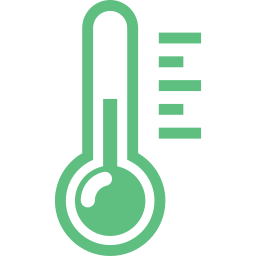One of the most irritating complications that can show up on a Nissan Cabstar is to see its temperature gauge increasing. The reality is, a gauge that rises above 90/100° is in most cases an indicator that your Nissan Cabstar is heating up. If you are in this case, you have done well to visit this web page link because we will make it easier for you to situate the origin and understand the cause. To achieve this, in the beginning, we will check out the causes for engine overheating and the hazards you run, and next, what answers are available to you to eliminate this phenomenon.

Why is my Nissan Cabstar overheating? What are the risks?
A Nissan Cabstar that heats up is an indication of a significant issue. You should not think that you will take care of it later because, if you do, you risk irreversibly harming the engine of your car. In truth, if your Nissan Cabstar heats up, and you keep driving, you just risk the breakage of your car engine. An internal combustion engine works through combustion, which triggers heat. This heat must be controlled because it can harm the engine parts. If you see white smoke starting to surface of your engine and you feel a loss of power, your Nissan Cabstar is heating up and you are harming your engine, you must stop.
What are the causes of an heating up Nissan Cabstar ?
- A leak in the cooling system
If you on a regular basis run out of coolant and refill your system on a regular basis, you could have a leak, so have your system checked out for leaks. It is also plausible that it is your cylinder head gasket that is defective, in which particular case you should recognize “mayonnaise” in the area of your engine oil cap. - A dead calorstat
The intent of this component is to switch on the engine cooling only when the engine is at optimum temperature, if it is ruined, the coolant will never reach the engine and your Nissan Cabstar will heat up. Check its state. - A blocked radiator
Although this circumstance is rarer, if your radiator is very dirty, or clogged with impure substances, its cooling fins will no longer accomplish their job and on hot days your Nissan Cabstar might overheat. - A fan that no longer works
Make sure to examine the state and operation of your fan, furthermore to the air produced by the speed of your Nissan Cabstar, it has a decisive duty in cooling your engine when it has to be the relay when you drive slower. In the instance of a breakdown and travelling at low speed, your car will obviously heat up. - A damaged water pump
Finally, it is plausible that your water pump is at the end of its life. In truth, its task is to flow the coolant throughout the circuit, in the instance of failure this operation stops and your Nissan Cabstar heats up. This might be due to a faulty belt that has ruined your pump. If this is your case, go to your mechanic.
How can I resolve the issue of an heating up Nissan Cabstar?
Additionally to having checked out all the auto parts that may be causing your Nissan Cabstar to heat up, you will have to make the right moves to limit the risks in case your car gets hot and you have no other solution than to go home, or to go to your repair shop.
Here are a few recommendations if your car is overheating:
- Reduce your engine speed but not your speed:
Reducing your engine speed will allow you to limit the heat emitted by the engine. However, try to stay in 5th gear at 70/80 km/h in order to have a large natural airflow to limit the heating of your Nissan Cabstar. - Stop the engine of your Nissan Cabstar if you meet or exceed 100°:
Don’t be in a rush, in a case of overheating, it is better to take breaks and let the engine cool down rather than pushing it and risking breakage. - Turn on your heater:
Turning on the heater will let you to evacuate some of the heat from the engine block, it is an effective solution. And conversely, turn off your air conditioner which creates heat.
To get more tips on the Nissan Cabstar, take a look at the Nissan Cabstar category.

